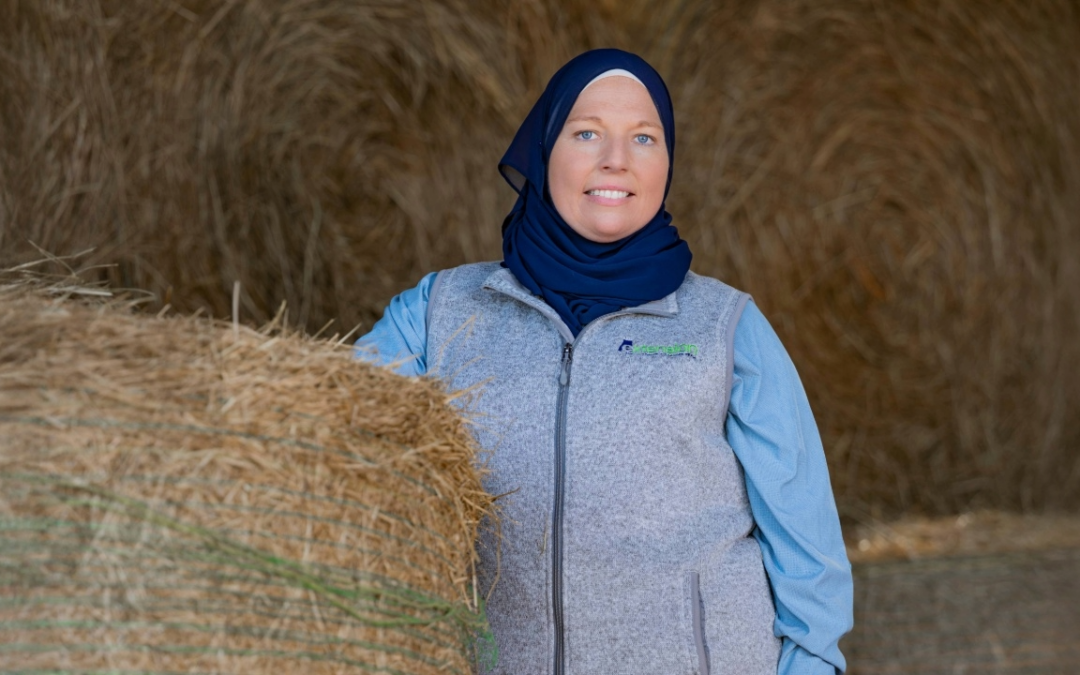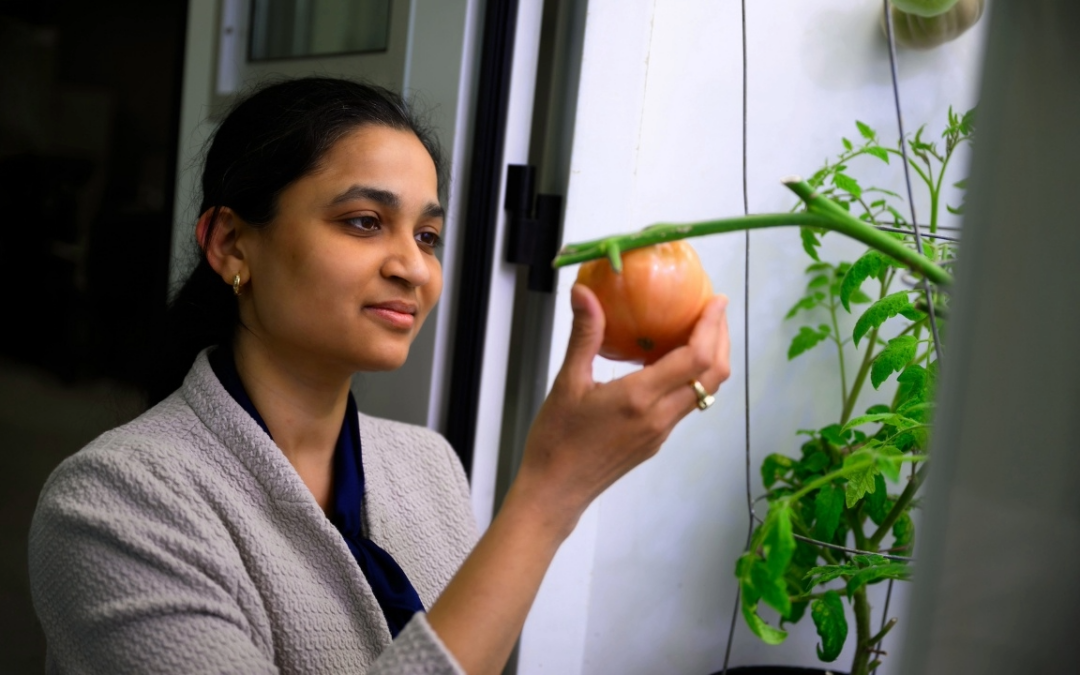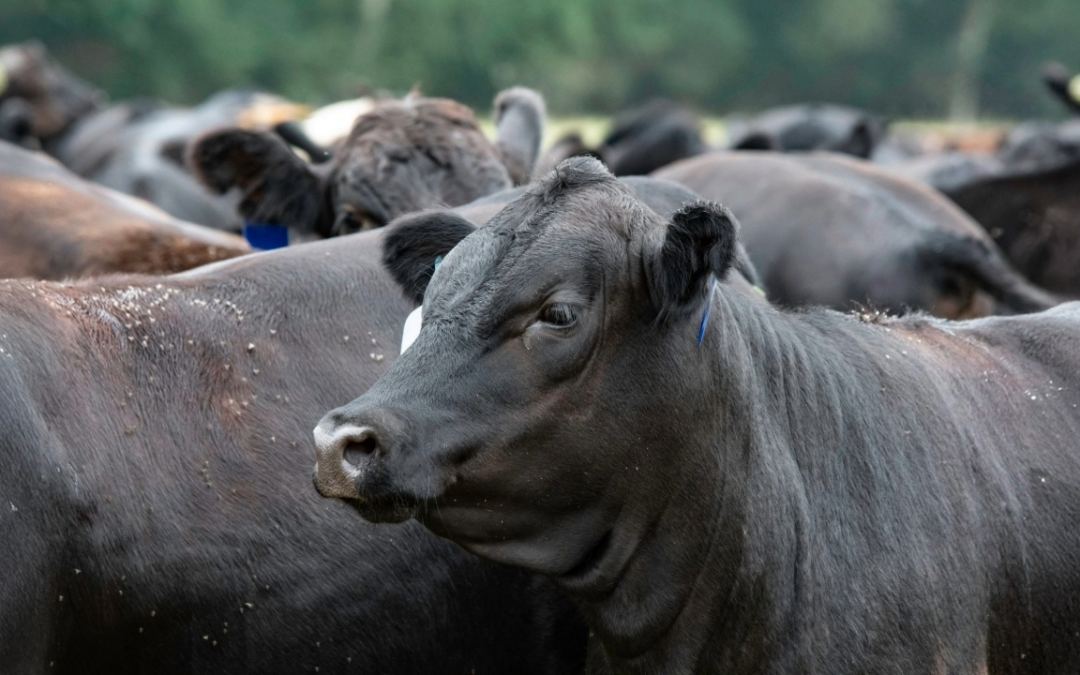Two researchers in the Auburn University College of Agriculture and the Alabama Agricultural Experiment Station are recipients of separate grants from the USDA-NIFA Agriculture and Food Research Initiative (AFRI), the nation’s leading competitive grant program for agricultural sciences.
Assistant Professor Aeriel Belk of the Department of Animal Sciences received a four-year, nearly $639,000 grant for her project, The Wisdom of The Quorum: How Biofilm Microbiomes Can Support or Inhibit Listeria Monocytogenes Growth in Small Meat Processing Facilities.
Belk’s grant is part of a larger $11-million National Institute of Food and Agriculture or NIFA investment to improve food and safety.
Assistant Professor Zachary Noel of the Department of Entomology and Plant Pathology received a nearly $850,000, three-year grant for his project, Making Every Seed Count: Assembly and Function of the Spermosphere Microbiome.
His grant award of part of a $12-million investment from NIFA to advance research in agricultural microbiomes.
Belk’s research focuses on the high-mortality pathogen Listeria monocytogenes in meat processing facilities.
“The conditions that allow this pathogen to persist are not fully known,” she said. “Despite monumental efforts by the industry to prevent contamination, there are regular outbreaks, especially among the young, old and immunocompromised.”
The risk Listeria poses to the most vulnerable populations makes it worth continued scientific pursuit to prevent outbreaks before they begin, she said.
“Meat processing facilities undergo rigorous cleaning and sanitation protocols,” Belk said. “This hostile environment has selected for organisms that have survival adaptations like the ability to form biofilms—structured networks of protein and sugars that protect the organisms living in them. Biofilms can provide a perfect environmental niche for Listeria growth. From there, it can contaminate food products and cause disease.”
However, she said, little is known about the role of the specific biofilm organisms and their potential impacts on food products.
“We aim to determine whether there are facility-associated biofilm microbial communities that support or inhibit the growth of Listeria,” she said. “We will collect biofilms from meat processing facilities in the Southeast and use advanced sequencing technologies to identify the microbial membership and their functions.”
Researchers then will introduce Listeria to these communities and determine how the functions and activities of the original microbes change—are they likely to compete with and exclude the Listeria or encourage its growth in the environment?
“We will then determine if we can predict eventual Listeria colonization from the original biofilm community,” Belk said.
The long-term goal of Noel’s research project is to improve knowledge of the function of the spermosphere microbiome to improve plant disease outcomes.
The spermosphere, he explained, is the zone surrounding seeds fueled by nutrient-rich seed exudates where interactions between the soil, microbial communities and germinating seeds take place. The concept of the spermosphere is usually applied only during germination.
How microbes grow in the spermosphere can determine the life or death of the plant soon after sowing, making this area incredibly important for plant health, especially when seeds are a significant operating cost for farmers each year. Protecting seeds from pathogens saves farmers money by making them more efficient, ensuring every seed they put in the ground counts. Yet there is a knowledge gap from when a farmer plants a seed to when it emerges from the soil.
“We have a bias in our exploration of the plant microbiome because we do a lot of the sequencing post-emergence after it has emerged from the ground,” Noel said. “So we focus on these early stages of plant development. What happens when we stick a seed in the ground? Just hours after that happens, the creation of the spermosphere is incredibly important to the plant, but we know little about it.”
Microbiome research, he said, is critical for improving agricultural productivity, sustainability of agricultural ecosystems, safety of the food supply, carbon sequestration in agricultural systems, and meeting the challenge of feeding a rapidly growing world population.
“From an agricultural standpoint, there are plenty of beneficial microbes, and there are plenty of pathogens,” Noel said. “The most simplistic way to think of this is how do we balance in favor of the beneficial microbes versus the pathogens so that seeds emerge from the ground every time?”





